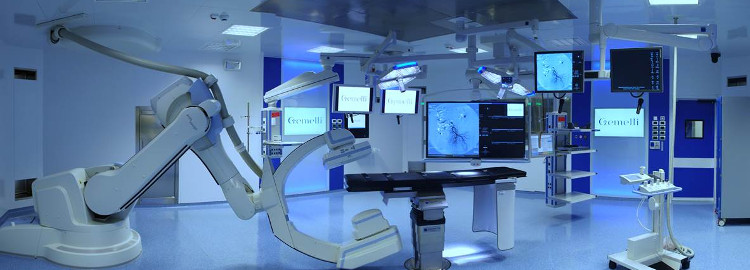“91% of the mortality in Spain is already due to chronic diseases, many of them preventable”
Francisco Javier Llovera and Juan Manuel Soriano, academicians of the Royal European Academy of Doctors-Barcelona 1914 (RAED), focus on the need to reorganize the health sector, from the management of health centers to the administrative model, to improve their service and patient care and optimize their resources. In the presentation “La organización hospitalaria, factor de eficiencia” (Hospital organization, efficiency factor), prepared with Lluís Asmarats, vice president of the Spain Health Association, doctors review the situation of the Spanish health system and point out the guidelines that could be followed to optimize their services and reduce their costs.
“The public health system in Spain has an accumulated deficit of more than 15,000 million euros. Despite the different approaches made by successive governments, this figure has not been reduced, which makes the National Health System a hindrance for public finances and for the health care system itself”, the three researchers began their reflection.
It’s a difficult starting point, coupled with the challenge of an aging society that increasingly requires more health care. If the model remains the same, this historical debt will increase exponentially, they reflect. “The greatest organizational and economic challenge of this decade will be to respond to one of the highest rates of aging and chronicity in Europe. 91% of the mortality in our country is due to chronic diseases, many of them preventable. Given this reality, it makes special sense to have an efficient organization of the system to tackle this challenge, one of the most important in our health system”, they say.
Taking the hospitals or health care centers as the spearhead of the health model, the starting point goes through their organization, they consider. Beginning with the management of its staff, Llovera, Soriano and Asmarats call for a work model where there is full trust between managers and subordinates, shared interdependence and responsibility, multigroup participation and responsibility, and a system of conflict resolution where negotiation. All this, they argue, has a decisive influence on the quality of care and management of resources.

Dr. Francisco Javier Llovera
Some parameters that nowadays work better in the private sector than the public. “Identifying the structural problems as well as the difficulties around the system determine a degree of organizational efficiency of the public health that is inferior to the private one, for which reason the public system must identify the aspects of the private health system that allow an index of organizational improvement in relation to the other public system”, they indicate. The researchers also invite the study of organizational systems in other countries “to know the efficiency tools used and that could be incorporated into the national system”.
On the other hand is the role of the doctor, who is implied without the necessary rigor in the management of resources. “Traditionally the doctor was assigned as main functions teaching, care and research. However, for a few years now a fourth leg has been added, which is management, but not only in the sense of running a hospital, but managing your time and making decisions that have an economic impact”, they explain, demanding the professionalization of these tasks with a criterion of effectiveness.
Finally, the three doctors emphasize the fundamental role that can be exercised in the system of public health called the Big Data. “Making smart use of clinical data is crucial to the sustainability and quality of the system. And in this, integrated information systems play a key role. Big Data technology in healthcare has come to save lives”, they say.





